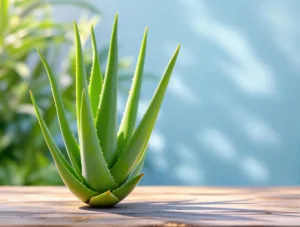The Ultimate Guide to Natural Oils for Treating Split Ends and Repairing Damaged Hair
Introduction
Split ends are a common hair woe that can make even the healthiest locks appear frizzy, dull, and unkempt. Whether caused by heat styling, chemical treatments, or environmental stressors, damaged hair requires targeted care to restore its strength and shine. While countless commercial products promise miraculous results, natural oils have stood the test of time as effective, chemical-free solutions for repairing split ends and nourishing hair from root to tip.
This comprehensive guide explores the best natural oils for treating split ends, their unique benefits, and how to incorporate them into your hair care routine. From coconut oil’s deep-moisturizing properties to argan oil’s restorative effects, we’ll break down the science behind these elixirs and provide practical tips for achieving healthier, stronger hair.
Understanding Split Ends: Causes and Prevention
What Are Split Ends?
Split ends, or trichoptilosis, occur when the hair shaft frays or splits due to damage. This can manifest as a single strand splitting into two or multiple splits traveling up the hair shaft. Left untreated, split ends can lead to breakage, stunted growth, and an overall unhealthy appearance.
Common Causes of Split Ends
- Heat Styling – Frequent use of blow dryers, flat irons, and curling wands weakens the hair’s keratin structure.
- Chemical Treatments – Bleaching, perming, and excessive coloring strip hair of its natural oils.
- Mechanical Damage – Rough brushing, tight hairstyles, and towel-drying can cause friction and breakage.
- Environmental Factors – Sun exposure, wind, and pollution contribute to dryness and brittleness.
- Nutritional Deficiencies – Lack of essential fatty acids, vitamins (A, C, E), and proteins weakens hair.
Preventing Split Ends
- Trim hair every 6-8 weeks to remove damaged ends.
- Use heat protectant sprays before styling.
- Opt for wide-tooth combs and silk pillowcases to minimize friction.
- Stay hydrated and maintain a balanced diet rich in omega-3s and antioxidants.
The Best Natural Oils for Split Ends and Hair Repair
Natural oils are packed with fatty acids, vitamins, and antioxidants that penetrate the hair shaft, sealing moisture and repairing damage. Below are the most effective oils for treating split ends.
1. Coconut Oil: The Ultimate Moisturizer
Benefits:
- High in lauric acid, which binds to hair proteins, preventing protein loss.
- Penetrates deep into the hair shaft for long-lasting hydration.
- Reduces frizz and adds shine.
How to Use:
- Warm 1-2 tablespoons of virgin coconut oil and apply from mid-length to ends.
- Leave for 30 minutes (or overnight for intense repair) before washing out.
2. Argan Oil: Liquid Gold for Hair
Benefits:
- Rich in vitamin E and fatty acids, which repair and soften hair.
- Protects against heat damage and UV rays.
- Lightweight, making it ideal for fine hair.
How to Use:
- Apply a few drops to damp or dry hair, focusing on the ends.
- Can be used as a leave-in treatment or heat protectant.
3. Jojoba Oil: The Closest to Natural Sebum
Benefits:
- Mimics the scalp’s natural oils, balancing moisture.
- Strengthens hair follicles and reduces breakage.
- Non-greasy and suitable for all hair types.
How to Use:
- Mix with a conditioner or apply directly to split ends.
- Ideal for daily use due to its lightweight texture.
4. Olive Oil: Ancient Remedy for Stronger Hair
Benefits:
- Contains oleic acid, which conditions and smoothes hair cuticles.
- Antioxidants combat free radical damage.
- Enhances elasticity, reducing breakage.
How to Use:
- Warm olive oil and massage into hair; cover with a shower cap for 20-30 minutes before rinsing.
5. Avocado Oil: Deep Repair for Extremely Dry Hair
Benefits:
- Packed with vitamins A, D, E, and monounsaturated fats.
- Promotes collagen production, strengthening hair.
- Ideal for thick, coarse, or chemically treated hair.
How to Use:
- Blend with an egg or honey for a nourishing hair mask.
6. Almond Oil: Lightweight Nourishment
Benefits:
- High in magnesium and vitamin E, reducing hair fall.
- Soothes dry, itchy scalp.
- Adds shine without weighing hair down.
How to Use:
- Apply a few drops to damp hair as a serum.
How to Maximize the Benefits of Natural Oils
1. Choose the Right Oil for Your Hair Type
- Fine Hair: Jojoba or argan oil (lightweight).
- Thick/Curly Hair: Coconut or avocado oil (deep moisture).
- Dry/Damaged Hair: Olive or castor oil (intensive repair).
2. Use Proper Application Techniques
- Pre-Shampoo Treatment: Apply oil before washing to prevent moisture loss.
- Overnight Mask: For deep conditioning, leave oil in overnight with a shower cap.
- Leave-In Serum: A few drops on ends can protect throughout the day.
3. Combine Oils for Enhanced Effects
- For Growth: Castor oil + coconut oil.
- For Shine: Argan oil + almond oil.
- For Repair: Olive oil + avocado oil.
Final Verdict: Which Oil Is Best for Split Ends?
While all the oils listed offer exceptional benefits, coconut oil and argan oil stand out as the most versatile for treating split ends. Coconut oil excels in deep hydration, while argan oil provides lightweight repair and heat protection. For best results, incorporate a combination of oils into your routine based on your hair’s specific needs.
Pro Tip:
Regular trims and protective styling are essential even when using oils—no product can fully “heal” split ends, but oils can prevent further damage and improve hair health over time.
By integrating these natural oils into your hair care regimen, you can transform dry, damaged strands into soft, resilient, and lustrous locks. Embrace the power of nature and say goodbye to split ends for good!









Add comment